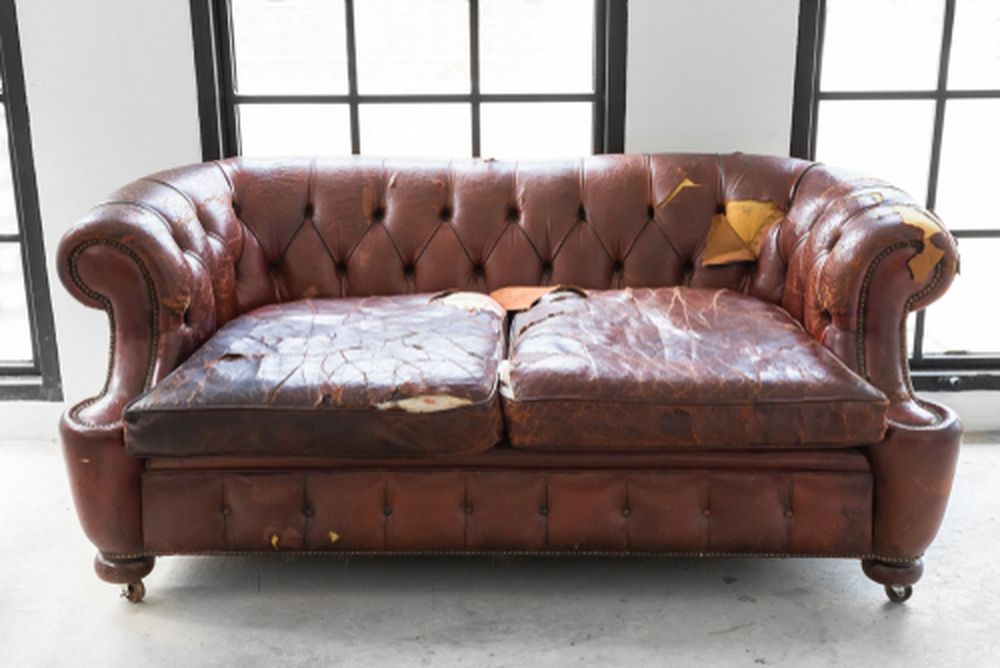How to Dispose of a Sofa?

You've got a new sofa, but now you’re wondering how to dispose of your old one. Sofas won’t be collected by your regular bin service, and most skips won’t allow them due to regulations. So, what are your options? Here’s a comprehensive guide on how to dispose of a sofa:
1. Donate Your Sofa
One of the best ways to dispose of an old sofa is to donate it. Many local charity shops are happy to take used sofas, as long as they are in good condition and have the necessary fire safety label attached. Organisations like the British Heart Foundation offer free collection services, making it easy to give your sofa a new home while supporting a good cause.
Before donating, check with the charity to ensure they accept sofas and confirm any requirements. Donating your sofa not only helps someone in need but also keeps usable furniture out of landfills.
2. Give It Away for Free
If you prefer to give your sofa away, consider posting it on local online platforms. Use community groups on Facebook, Freecycle, or Gumtree to reach people in need of furniture. This option is great for those who want to quickly get rid of a sofa while helping others. Simply list your sofa for free and wait for someone to arrange a collection.
3. Sell Your Sofa
If your sofa is in good condition, you could try selling it. Platforms like eBay, Facebook Marketplace, or local classified ads are great for reaching potential buyers. When selling online, choose the “collection only” option to avoid shipping hassles. You could also explore local furniture resale shops if you prefer not to deal with online transactions.
Selling your sofa is a cost-effective way to dispose of it; you’ll earn some cash, and the buyer will handle the collection. However, be prepared to invest some time in taking quality photos, writing a detailed description, and communicating with potential buyers.
4. Recycle Your Sofa at a Local Recycling Centre
If your sofa is no longer suitable for reuse, recycling is an eco-friendly option. Many local recycling centres accept sofas, but you will need a vehicle large enough to transport it. Always contact the recycling centre ahead of time to confirm they accept sofas and check for any specific requirements, such as proof of address.
Recycling prevents your sofa from ending up in a landfill and allows for the recovery of materials like wood, metal, and fabric, which can be repurposed.
5. Arrange a Council Bulky Waste Collection
Most local councils offer bulky waste collection services for large items like sofas. While this service usually comes with a fee, it can be a convenient way to dispose of a sofa without needing to transport it yourself. Contact your local council to schedule a collection, but be aware that waiting times may vary depending on their availability.
6. Use a Retailer Take-Back Service
When purchasing a new sofa, many retailers offer a "take-back" service where they will collect your old sofa on the same day they deliver the new one. This is often a free service or may involve a small fee. Before making a purchase, ask the retailer if they provide this option and confirm any conditions.
7. Hire a Professional Sofa Removal Service
If convenience is your priority, hiring a professional sofa removal service might be the best choice. These services handle all aspects of the removal, including heavy lifting and transportation, ensuring your sofa is disposed of responsibly. Search online for local waste disposal or sofa removal companies and compare their fees and services.
Conclusion: Choose the Best Option for Sofa Disposal
When deciding how to dispose of a sofa, consider your priorities, whether it's cost, convenience, or environmental impact. Each method offers a different benefit, from donating to a charity to hiring a professional removal service. No matter which option you choose, following the proper steps for disposal ensures your old sofa is dealt with responsibly, avoiding unnecessary waste and supporting sustainable practices.
By taking the right approach, you can dispose of your old sofa in a way that benefits both you and the environment.
Author: Spencer Murphy
30 June 2022
Still have questions?
You can send us message, call or chat live with an expert for personalised advice.